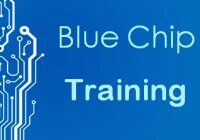 Data Science is an arena of reconstructing unstructured data to a structured model and confer it into knowledge. There are several tools and programming languages that are used in this process, and R is one such effective and required programming language for this purpose. Data Science R Training is one such training program that will help you to learn R Programming for Data Science from basic to advance level.
Data Science is an arena of reconstructing unstructured data to a structured model and confer it into knowledge. There are several tools and programming languages that are used in this process, and R is one such effective and required programming language for this purpose. Data Science R Training is one such training program that will help you to learn R Programming for Data Science from basic to advance level.
This training program will let you learn how to use variables, matrix, functions and other models of R programming required for Data Science. At advance level, you learn to use R programming language in collaboration of Machine learning algorithm for Data Science.
Prerequisites
- This course has no specific prerequisites.
- Fundamental knowledge in any high-level programming language (preferably R) is ideal but not required.
- Basic knowledge of statistics would be considered as an added advantage.
- Basic knowledge of computer hardware and software is ideal but not required.
What will you gain after this course
- Through this course, you can stay on top of others in the talent race.
- You will be recognized as a professional Data Scientist.
- You will be recognized as an R Programmer, as well.
- With the help of this course, you will be recognized as a Business intelligence (BI) expert.
Course Outline
Day One: Language Basics
- Course Introduction
- About Data Science
- Data Science Definition
- Process of Doing Data Science.
- Introducing R Language
- Variables and Types
- Control Structures (Loops / Conditionals)
- R Scalars, Vectors, and Matrices
- Defining R Vectors
- Matricies
- String and Text Manipulation
- Character data type
- File IO
- Lists
- Functions
- Introducing Functions
- Closures
- lapply/sapply functions
- DataFrames
- Labs for all sections
Day Two: Intermediate R Programming
- DataFrames and File I/O
- Reading data from files
- Data Preparation
- Built-in Datasets
- Visualization
- Graphics Package
- plot() / barplot() / hist() / boxplot() / scatter plot
- Heat Map
- ggplot2 package (qplot(), ggplot())
- Exploration With Dplyr
- Labs for all sections
Day Three: Advanced Programming With R
- Statistical Modeling With R
- Statistical Functions
- Dealing With NA
- Distributions (Binomial, Poisson, Normal)
- Regression
- Introducing Linear Regressions
- Recommendations
- Text Processing (tm package / Wordclouds)
- Clustering
- Introduction to Clustering
- KMeans
- Classification
- Introduction to Classification
- Naive Bayes
- Decision Trees
- Training using caret package
- Evaluating Algorithms
- R and Big Data
- Connecting R to databases
- Big Data Ecosystem
- Labs for all sections
